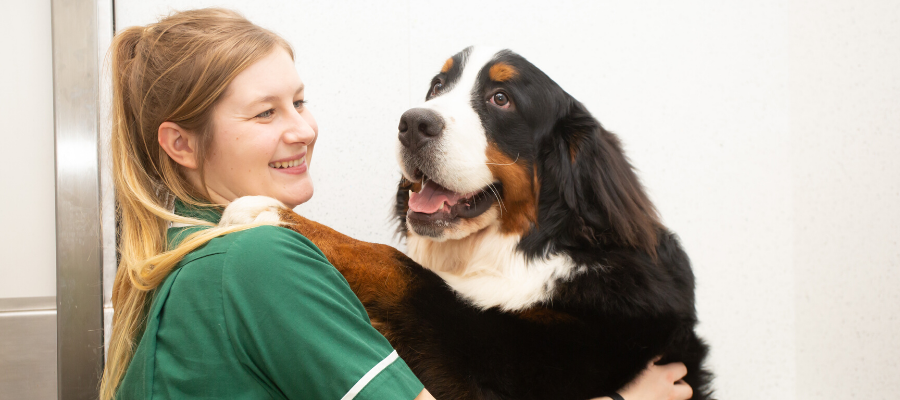
Cats and dogs, as predatory and naturally inquisitive animals, can pick up all kinds of parasites on their travels. For the sake of human as well as pet health, these parasites should be controlled by regular use of worming products, available from the surgery.
Lungworm (Angiostrongylus vasorum)
What is lungworm?
Lungworm is a potentially fatal parasitic disease which affects mainly dogs of all ages and breeds. It is found throughout the UK but is most common in the south of England. Pets can become infected by ingesting infected slugs, snails or frogs in puddles or attached to toys, or even by licking the slime trail.
The immature larvae grow inside the animal’s body and adult lungworm move to the heart and main artery associated with the lungs. If left untreated it can cause breathing issues, heart failure and haemorrhages throughout the body.
What are the symptoms?
- Breathing problems and coughing
- Tiring easily on walks and general lethargy
- Bleeding problems- a cut might bleed for longer than usual, bloody faeces, unusual bruising
- Weight loss
- Pale gums and eyelids
If you’re worried your dog is showing signs of lungworm, contact your vet immediately. It’s particularly important to be aware of lungworm prior to any operations as lungworm can cause excessive bleeding which can be dangerous- providing protection to pets prior to procedures is highly recommended.
How do I treat and prevent it?
Make sure that you use a flea or worming product that protects against lungworm as the ingredient is not licensed for use in over the counter medications at time of writing. Lungworm protection can come in spot on treatment form or tablets. Speak to your vet to ensure your cat or dog is fully protected against all harmful parasites.
Roundworms
What are roundworms?
Roundworms are small white/light brown worms that live inside and feed off an animal’s intestine. You may be able to see the worms in your pet’s faeces or vomit. They are transmitted to puppies and kittens from infected mothers or through ingesting the faeces of infected animals.
What are the symptoms?
Roundworms can cause vomiting, diarrhoea and weakness. Importantly, roundworms can be transferred to humans via ingestion of the roundworm eggs. Toddlers and children are particularly at risk as they are prone to putting dirty fingers in their mouths. In humans roundworms can cause stomach upsets, headaches and blindness if the larvae reach the eyes.
How is it treated and prevented?
There are several worming options available, your vet will advise you of the best one for your pet. We recommend the use of an effective roundworm treatment for puppies and kittens from the age of two weeks. Bitches and queens should be wormed at the same time as their offspring until the time of weaning, with a treatment suitable for feeding their young ones. Your vet will be able to provide the appropriate treatment.
Tapeworms
What are tapeworms?
Tapeworms are more of a problem in the adult cat or dog. There are several species, each using the cat or dog as a primary host. The head of the worm is buried in the wall of the host’s intestine and the body is formed of a long line of connected segments. The ripe segments at the tail end contain hundreds of eggs and these egg packets are shed in the host’s faeces. They are often seen sticking to the fur around the hind end of a cat or dog, looking rather like grains of rice.
How would my pet get tapeworms?
The most common cause of infection is ingestion of an infected flea or small animal (like a bird or mouse) which carries the eggs or larvae that hatch into an adult worm in your pet. If your cat is an outdoor cat who likes to hunt or your dog eats everything it sees on walks, it may be advisable to worm them more often.
What are the symptoms?
Your pet may start scooting their backside along the floor or try chewing or licking at their back end. In severe cases there may be some weight loss over time.
How is it treated and prevented?
There are many worming treatments available in tablet or spot on forms, speak to your vet about which is best to have your pet fully covered. As some tapeworms can also be spread via fleas, it is also important to regularly use flea prevention.
Call us on 01435 864422 if you have any questions about parasite prevention for your pet.

